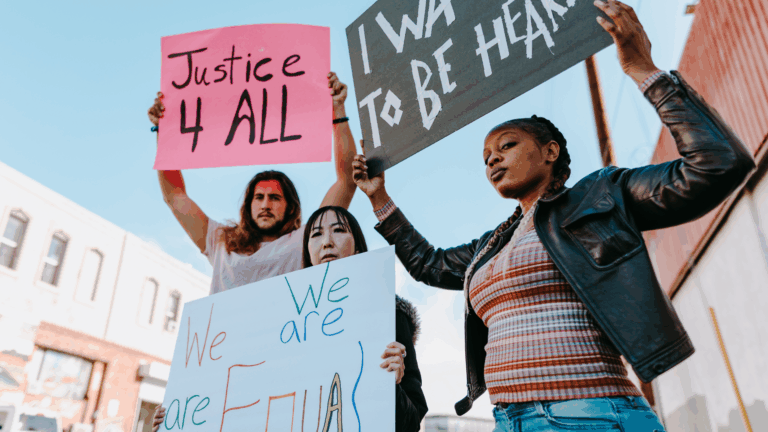It depends on a person’s definition of “gay-affirming.” We affirm the value and worth of gay** people. We believe that LGBT+ people have endured discrimination, fear, shame, and loneliness for far too long. We recognize that God allows some to develop broken same-sex attractions but has plans to redeem that brokenness in ways that will bring goodness to the lives of LGBT+ people. We believe LGBT+ Christians have unique perspectives to offer the Body of Christ and that it is often helpful for them to find identity with, find community among, and advocate for others with a similar story.
Unfortunately, those who hold a revisionist sexual ethic have made efforts to further define “gay-affirming” to include belief that God blesses same-sex romantic and sexual relationships. In that sense, Equip is not gay-affirming. We are convinced that historic sexual ethics reflect God’s wisdom for our sexualities, as revealed by the Scriptures read with the historic Church. At the same time, we do affirm that God has called the Church to love and care for gay people. We affirm a desire for gay people to enjoy the best things this world has to offer, and we’re convinced that the best things come from God. That is what love is: to will a person to enjoy goodness. But what is good? How can we know what is good? How do we know what the most good things are that God is offering? Christian orthodoxy informed by the Bible, Church authority, and the teachings of Church mothers and fathers.
Here’s a helpful equation: empathy + orthodoxy = love. You see, love is not truly loving if it does not point people toward what is most good—if it lacks theological orthodoxy. But orthodoxy without empathy also falls short of embodying love. If we empathize—if we appreciate the challenges those on the margins face—we will let ourselves be implicated in the problem and be willing to work to help those on the margins take hold of the best things God is offering. Unfortunately, there are many churches who practice empathy without orthodoxy, there are even more churches that practice orthodoxy without empathy, and still some who offer neither empathy nor orthodoxy. But each of those options are ultimately unloving, perhaps even selfish. They are each examples of choosing what is easy over what is most good.
We believe that churches that sit the fence on this topic hurt Christians who experience same-sex attraction—that not taking a side is a privilege of straight Christians. This leads a church to fail gay Christians because their indecision limits their ability to invest in something better. And we believe that churches that adopt heterodox beliefs about sexuality and intimacy also hurt gay Christians, because they are not pointing people to the best things God is offering.
And then there are churches who espouse orthodox beliefs (for the most part) about sexuality and intimacy, but most do little to support Christians who experience same-sex attraction in meaningful, structural ways. Those churches aren’t places where Christians (gay or straight) can do celibacy well or where gay Christians can marry someone of the opposite sex and thrive. What they have to offer is just as empty.
We love people who experience same-sex attraction and we want the best things for them. We believe that only God can offer what is truly best and that comes from submitting our lives (including our sexualities) to God in ways that can be inconvenient and culturally abnormal. But anything short of this is not truly gay-affirming: it may be tolerant, but it is superficial and ultimately patronizing.
Want to join us in equipping the Church to better love those who experience same-sex attraction? Start conversation among your friends, join the work of Equip, or be an ambassador for Equip to your church today!
**What do we mean when we use the word gay? People who are attracted to people of the same sex and find a kinship among others of a similar experience—nothing more.







Jeremy
This is an incredibly harmful post. Forcing an extra-biblical idea of orthodoxy onto people and calling it love, all while denying the essential humanity of LGBTQ+ people, is the opposite of love.
Pieter Valk
Jeremy, thank you for sharing your concern. I agree that it is harmful to force LGBT+ adults (or any adults, for that matter) to live according to an ethic they have not chosen for themselves. Instead, EQUIP teaches churches to become places where gay people who choose to live according to a traditional sexual ethic can belong and thrive.
Frank
If you’re teaching churches to accept the LGBTQ+ only if they follow a heterosexual ethic, they won’t thrive, the opposite will happen. You’re demanding they follow a sexual ethic that is foreign to them as an LGBTQ+ person. It will only bring them frustration, pain, and despondency.
Frank
Nice way to dance around it. You aren’t gay affirming unless they follow your poor orthodoxy. Just come out and say it.
Pieter Valk
Frank, thanks for sharing your thoughts. It sounds like we disagree about what God’s wisdom is for us. Knowing that, I can certainly understand your doubt about whether what we teach is good (particularly in light of the bad fruit of churches teaching a fundamentalist, homophobic sexual ethic in the past). Thankfully, EQUIP advocates for a very different traditional sexual ethic than churches have taught or embodied in recent decades.